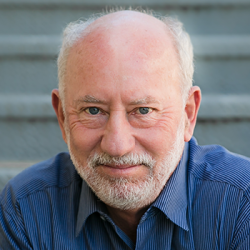
“Familia” was the theme of our keynote this morning at PBL World, delivered by Dr. Jacqueline Perez, President of the California Association of Latino Superintendents and Administrators (CALSA) and assistant superintendent of Riverside Unified School District, CA.
Dr. Perez began her remarks by noting that 1400 people are at PBL World 2019, from every role in education and from 13 countries, and asked, “What strength and power can we harness from the diversity in this room?”
She reminded us that in CA and in this nation, we have an equity gap that perpetuates the cycle of poverty; 62% of students in California live below the poverty line. “3.8 million students do not have all the social capital to successfully pursue college and career goals,” she added, “How can we break the cycle of poverty?”
What PBL Does for Kids
Dr. Perez then made the connection to Project Based Learning: “We do know that students who are engaged in schools, who have a connection with their teacher, who are engaged in the work, will be successful… and that’s really what PBL does for our kids.” After sharing her own background as the daughter of Mexican immigrants who pushed her to go to college, she reminded her audience that, “what you do, engaging in this work, addresses the urgency for so many of our kids.”
“Start with your why”
Dr. Perez told us, citing Simon Sinek. “Folks buy into why you do what you do, not what you do. Students know, oh so well, when you’re passionate about what you do and you care about them.”
She concluded with a powerful call to action: “Build your PBL familia this week. Use your “why” to continue to build your PBL toolkit, but also to develop those relationships. You’re part of a great and powerfully impactful community, dedicated to bridging authentic learning, access, and engagement. So don’t forget the urgency, don’t forget all those students living in poverty, who need this to thrive.”

Students from Ralph J. Bunche and Tamalpais High Schools
Preceding our keynote was a group of students who have had successful experiences with PBL. One team was from the AIM (Academy of Integrated Humanities and New Media) program at Tamalpais High School in Mill Valley, CA. They showed a 6 ½ minute documentary film, “Rooted in Oakland”, which they produced this past semester, about the school-to-prison pipeline and the restorative justice program at Ralph J. Bunche high School in Oakland. Students from Bunche spoke about the sense of community at their school and the hands-on learning they benefitted from there.
Our moderator Dinah Becton-Consuegra asked the students a few questions and got some very thoughtful responses. She asked what they gain from PBL:
A Tam High student said, “In conventional curriculum… textbook learning, classroom learning tends to emphasize traditional academic skills like research, writing, studying… Whereas with PBL you get that, and you get a whole other arsenal of other skills… thinking critically, working collaboratively, how to communicate with people from different backgrounds, a much broader skill set compared to conventional learning.”
A student from Bunche told how PBL allowed her to feel a sense of real-world accomplishment. She described a project where their culinary program created a pop-up restaurant with the goal of raising $3000, and they reached $10,000. She mentioned a project to provide food to homeless, and another one to put on a Thanksgiving dinner for the community, and said the projects “help us find out what we want to do with our life.”
What would you like to say to these 1,400 educators?
That was Dinah’s last question, and here’s what the students said:
“For a lot of us school is basically our second home. So it’s really important that students are approached holistically and we’re helped to grow not just academically but as individuals. One type of education doesn’t work for everybody, so keep in mind how education can be built around students and what students need instead of the other way around.”
“I’d say not look at it as teacher-to-student but person-to-person. That’s a person, not just a student, and you’re doing something to their lives – you’re inspiring them and you want them to succeed… make them feel at home, a community – they want that, they need that.”
“Love what you do – students can tell if you don’t want to be in the classroom (audience laughs). Actually engage with the students.”
Sounds like what a good PBL teacher does, eh?
More to come tomorrow, with keynote speaker Pedro Noguera!

